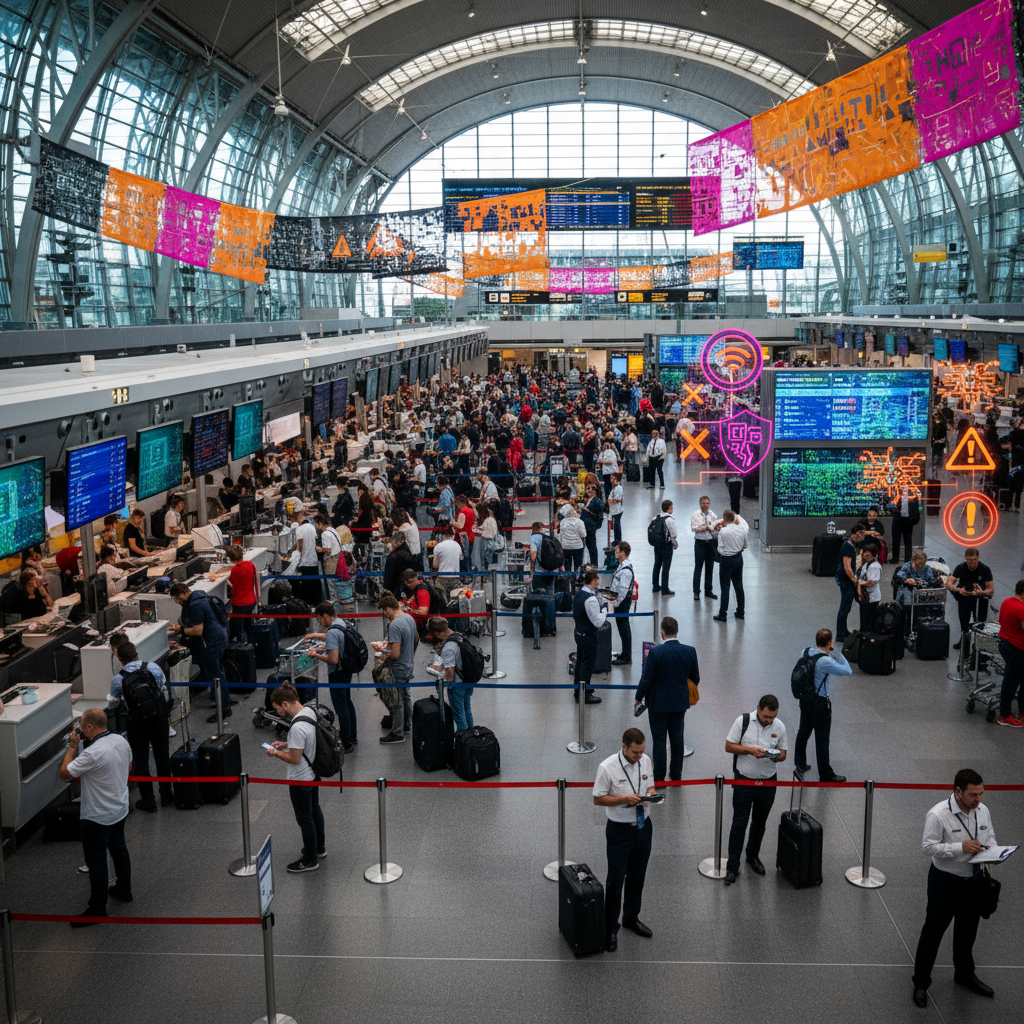Europe’s airports woke up to a different kind of turbulence this week — not in the skies, but on the ground. A coordinated cyberattack knocked out check-in systems at several major hubs, plunging terminals into chaos and testing the patience of passengers who suddenly found themselves trapped in queues stretching from departure counters to the sliding glass doors of the arrivals hall.
Chaos in the Terminals
At Frankfurt Airport, one of Europe’s busiest, departure screens blinked out of service just as the morning wave of business travelers arrived. Staff, armed with clipboards and makeshift forms, scrambled to keep passengers moving. “It felt like a time warp,” muttered a passenger bound for New York, pointing at staff handwriting boarding details. “Everything we take for granted in air travel just disappeared in seconds.”
Scenes were similar in Paris, Madrid, and Amsterdam, where frustrated travelers clutched smartphones showing digital boarding passes they couldn’t use. Bags piled up near counters, families sat cross-legged on the floor, and tempers flared as announcements repeated the same phrase: technical difficulties.
Targeting the Weakest Link
The cyberattack didn’t touch air traffic control, radar, or flight navigation — the systems that keep planes from colliding in the sky. Instead, it hit the softer surface layer of aviation: the customer-facing technology that keeps passengers flowing through the system.
Analysts suggest this was intentional. “The attackers wanted maximum disruption with minimum effort,” said a cybersecurity specialist in Berlin. “Check-in and baggage handling are the industry’s soft underbelly. They rely on old systems tied together with patches — easy to break, hard to fix quickly.”
Economic and Political Ripples
Beyond the terminal walls, the outage stirred bigger questions. Airlines were forced to delay or cancel flights, leaving losses that could stretch into millions by the week’s end. For European regulators, already juggling air traffic strikes and climate protests, the incident underscores how vulnerable aviation infrastructure is in an era of digital warfare.
“Planes can be grounded without a single runway being blocked,” one Brussels policymaker observed grimly. “That shifts the definition of airport security.”
A Warning for What Comes Next
By late afternoon, some systems were slowly crawling back online, though backlogs remained. But the episode lingers as a warning: in the modern travel ecosystem, it may not take a volcanic eruption or a pandemic to bring global mobility to its knees. Sometimes, all it takes is a line of malicious code.
For travelers, it was a day of missed meetings and delayed vacations. For the aviation industry, it was something else entirely — a stark reminder that the most sophisticated jets in the world are still grounded by the weakest link in the digital chain.







